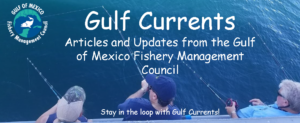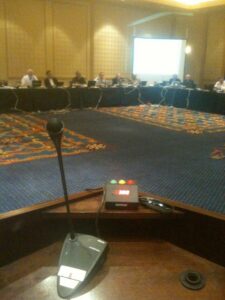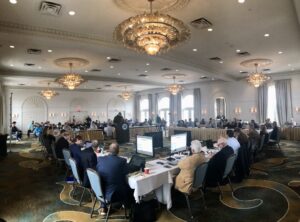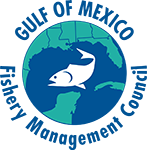

If you’re an offshore fisherman in the Gulf, there is a reasonable chance that you’re dissatisfied with at least one aspect of current federal regulations. Luckily, the Council process, through which federal regulations are developed, strives to be one of the most open, public regulatory processes in existence.
The Gulf of Mexico Fishery Management Council is an advisory body to NOAA fisheries. The Council system was created specifically to ensure that federal fisheries management decisions are made using local level knowledge, experience, and expertise to develop regulations. Council members themselves are appointed members of the public with various backgrounds in some part of the fishery. This includes people with interests in recreational fishing, seafood processing, commercial fishing and academia. Through the Council process, fishermen and other local experts, who get involved in the process, help shape fisheries management decisions. This ensures that regulations are not made in a vacuum by politicians or federal employees, and that you can participate directly in the management process.
Council recommendations are made using both scientific advice from NOAA Fisheries and other academic experts, as well as public input. Council members are appointed to serve because they have intimate knowledge of the fishery. The Council also relies on the expertise of fishermen across the region who populate its Advisory Panels and members of the public who engage in the management process. To ensure that your perspective is considered
 we provide numerous opportunities and tools to encourage you to share your opinions virtually and in-person to the Council. You also can apply to serve on advisory panels or as a Council member.
we provide numerous opportunities and tools to encourage you to share your opinions virtually and in-person to the Council. You also can apply to serve on advisory panels or as a Council member.
If you’re still skeptical about the process and how much the public can affect fisheries management, you may benefit from evidence that public efforts make a difference. With that in mind, the following is a list of recent Council actions and decisions that have been directly impacted by stakeholder engagement:
- In an effort to rebuild the greater amberjack stock, the Council was considering changing greater amberjack regulations, but also including the entire jacks complex (which includes lesser amberjack, banded rudderfish, and almaco jack) to avoid out of season or undersized harvest of greater amberjack due to misidentification. After hearing public testimony that did not support the idea, the Council pivoted away from any consideration of including other jacks in the complex.
- Anglers indicated that people were using a regulatory loophole to poach reef fish in Madison-Swanson and Steamboat Lumps marine reserve that were created to protect spawning gag grouper. In response, the Council modified fishing regulations and possession allowances in these protected areas to make it more difficult to harvest reef fish illegally.
- A federal for-hire permit holder indicated that on-the-books regulations allowing multi-day for-hire trips to retain more than one trip limit did not reflect the historical way the fleet was practicing. In response, the Council modified the multi-day possession limits to more closely reflect the needs of the fleet.
- An advocacy group representing the small commercial king mackerel gillnet fishery made a case for why weekend closures during the season were unnecessary. The Council removed the weekend closures to allow the fleet greater efficiency in their harvest.
- Commercial fishermen had been indicating for several years that the Gulf gray triggerfish stock was healthy and that the commercial trip limit needed to be increased. Because the trip limit was so small, the fleet had not harvested its annual allowance. The Council chose to increase the commercial trip limit recommended by the Reef Fish Advisory Panel.
- To avoid misidentification issues and keep regulations consistent in Gulf and South Atlantic jurisdictions, the Council considered including black grouper in bag limit reductions that aim to constrain gag grouper harvest. After hearing testimony that gag and black groupers are not easily mistaken for one another, and that matching Gulf regulations to South Atlantic regulations may not be a priority, the Council removed consideration of adding black grouper to bag limit changes.

To be clear, engagement in the Council process does not guarantee the end management result will be what you want. There are multiple different interests competing for the resource and numerous regulatory constraints that may conflict with your goal. It’s possible your management idea could be unachievable for any number of logistical, scientific, regulatory, or social reasons. However, we can guarantee that we will earnestly listen to your suggestion and consider it as we deliberate. We’re always available to discuss your proposed solution, provide context when it’s not feasible, and provide guidance on how to effectively make your opinion heard. Advice gathered through stakeholder engagement plays an incredible role in shaping fisheries management in the Gulf. The more diverse perspectives the Council can consider, the better. We genuinely encourage you to get involved!
Stay tuned for our next article that will provide you with tips on how to effectively get involved. For now, consider looking over this resource on Getting Involved in the Council Process.

